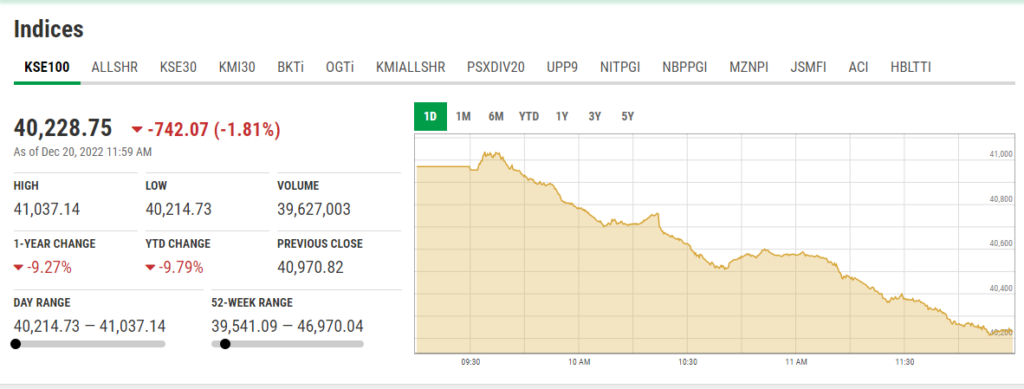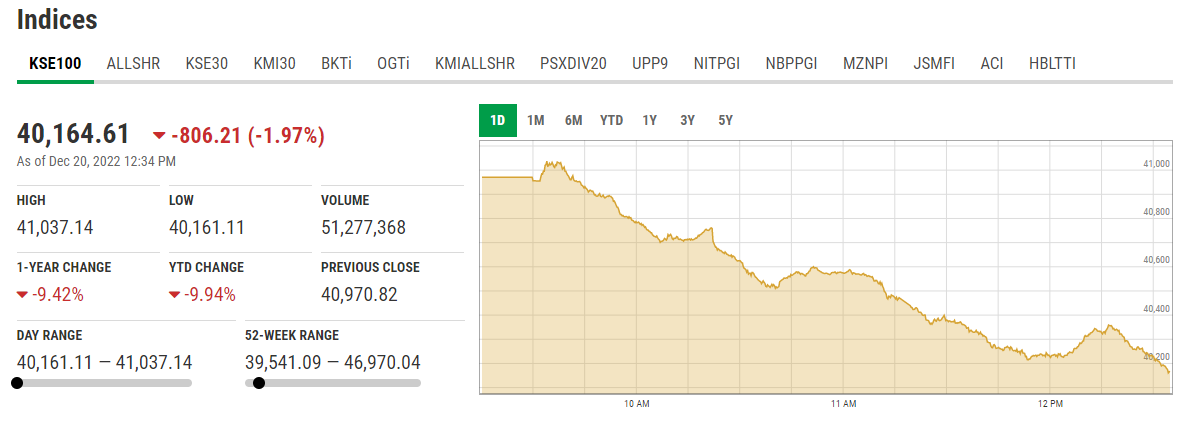Business
PSX nosedives by over 800 points amid political uncertainty
-

 Latest News10 hours ago
Latest News10 hours agoThe team’s failure to capitalize against India is acknowledged by Mohammad Rizwan.
-

 Latest News10 hours ago
Latest News10 hours agoPakistan Provides Gaza With 100 Tonnes Of Crucial Aid
-

 Latest News9 hours ago
Latest News9 hours agoAlibaba pledges to invest $53 billion in cloud computing and AI by 2027.
-

 Latest News10 hours ago
Latest News10 hours agoSeven Khwarij are killed by security forces in Dera Ismail Khan.
-

 Latest News9 hours ago
Latest News9 hours agoMore than 10 energy projects are nearing completion in Khyber Pakhtunkhwa.
-

 Business10 hours ago
Business10 hours agoAfter more than 50 years, Bangladesh and Pakistan resume direct trade.
-

 Latest News10 hours ago
Latest News10 hours agoFor a two-day official visit to Azerbaijan, the PM arrives in Baku.
-

 Business10 hours ago
Business10 hours agoThe amount of trade between Saudi Arabia and Pakistan hits $700 million.
























